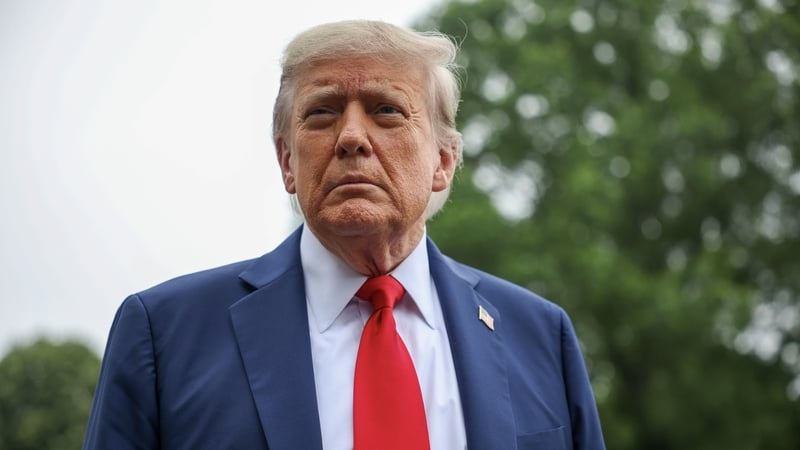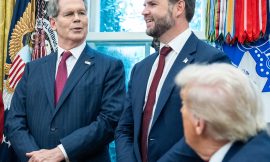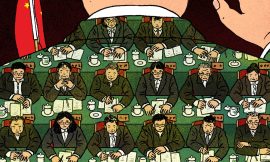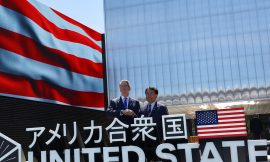US President Donald Trump said he is calling off trade negotiations with Canada in retaliation for taxes impacting US tech firms, adding that Ottawa will learn of their new tariff rate within a week.
Mr Trump was referring to Canada’s digital services tax, which was enacted last year and forecast to bring in Can$5.9 billion (US$4.2 billion) over five years.
While the measure is not new, US service providers will be “on the hook for a multi-billion dollar payment in Canada” come 30 June, noted the Computer & Communications Industry Association recently.
The 3% tax applies to large or multinational companies such as Alphabet, Amazon and Meta that provide digital services to Canadians, and Washington has previously requested dispute settlement talks over the matter.
“Based on this egregious Tax, we are hereby terminating ALL discussions on Trade with Canada, effective immediately,” Mr Trump said in a post on his Truth Social platform yesterday.
Canada may have been spared some of Mr Trump’s sweeping duties, but it faces a separate tariff regime.
Mr Trump has also imposed steep levies on imports of steel, aluminum and autos.
Last week, Canadian Prime Minister Mark Carney said Ottawa will adjust its 25% counter tariffs on US steel and aluminium – in response to a doubling of US levies on the metals to 50% – if a bilateral trade deal was not reached in 30 days.
“We will continue to conduct these complex negotiations in the best interest of Canadians,” Mr Carney said yesterday, adding that he had not spoken to Mr Trump on the day.

US Treasury Secretary Scott Bessent told CNBC that Washington had hoped Mr Carney’s government would halt the tax “as a sign of goodwill.”
He now expects US Trade Representative Jamieson Greer to start a probe to determine the harm stemming from Canada’s digital tax.
China progress
Mr Trump’s salvo targeting Canada came shortly after Washington and Beijing confirmed finalising a framework to move forward on trade.
A priority for Washington in talks with Beijing had been ensuring the supply of the rare earths essential for products including electric vehicles, hard drives and national defense equipment.
China, which dominates global production of the elements, began requiring export licenses in early April, a move widely viewed as a response to Mr Trump’s blistering tariffs.
Both sides agreed after talks in Geneva in May to temporarily lower steep tit-for-tat duties on each other’s products.

China also committed to easing some non-tariff countermeasures but US officials later accused Beijing of violating the pact and slow-walking export license approvals for rare earths.
They eventually agreed on a framework to move forward with their Geneva consensus, following talks in London this month.
A White House official told AFP on Thursday that the Trump administration and China had “agreed to an additional understanding for a framework to implement the Geneva agreement.”
This clarification came after the US president told an event that Washington had inked a deal relating to trade with China, without providing details.
Under the deal, China “will review and approve applications for the export control items that meet the requirements in accordance with the law,” China’s commerce ministry said.
“The US side will correspondingly cancel a series of restrictive measures against China,” it added.
Upcoming deals
Dozens of economies, although not China, face a 9 July deadline for steeper duties to kick in – rising from a current 10%.
It remains to be seen if countries will successfully reach agreements to avoid them before the deadline.
On talks with the European Union, for example, Mr Trump told an event at the White House yesterday: “We have the cards. We have the cards far more than they do.”
But Mr Bessent said Washington could wrap up its agenda for trade deals by September, indicating more agreements could be concluded, although talks were likely to extend past July.
Mr Bessent told Fox Business there are 18 key partners Washington is focused on pacts with.
“If we can ink 10 or 12 of the important 18, there are another important 20 relationships, then I think we could have trade wrapped up by Labor Day,” Mr Bessent said, referring to the US holiday on 1 September.
Wall Street’s major indexes finished at fresh records as markets cheered progress in US-China trade while shrugging off concerns about Canada.




